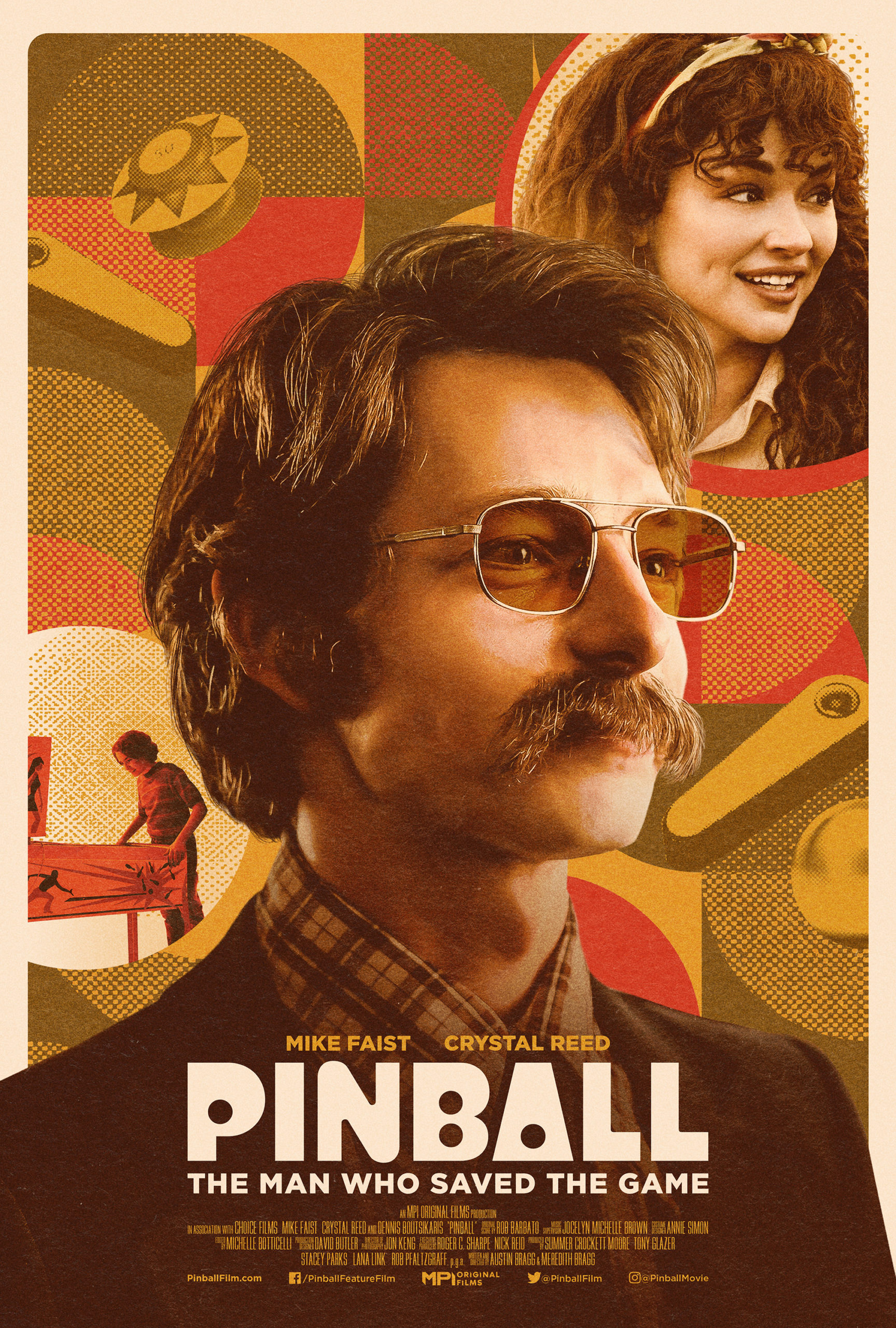 Pinball: The Man Who Saved the Game
Pinball: The Man Who Saved the Game
Feature Film Focuses on Roger Sharpe & Overturning NYC Pinball Ban
We know him as “our” Roger Sharpe, writer (GQ magazine and the book Pinball! published in 1977), avid pinball player and champion of the game, designer (the Sharpshooter pin among them), friendly face at our shows and meetings, co-founder of the Professional Amateur Pinball Assn., and father to Josh and Zach who grew up and came to work in the business, too. Now, thanks to a charming feature film, more people across the world will not only get to know him but also gain a deeper appreciation for the game of pinball and our industry’s brand of entertainment in general.
In a word, the film is delightful.
It’s called Pinball: The Man Who Saved the Game, written and directed by Meredith and Austin Bragg and produced by Summer Crockett Moore, Tony Glazer, Stacey Parks, Lana Link and Rob Pfaltzgraff. From MPI Original Films, it stars Mike Faist as the younger Roger Sharpe, Dennis Boutsikaris as his older self and Crystal Reed as his wife-to-be Ellen. It’s been making the film festival rounds, resonating with filmgoers whether they have an affection for pinball or not.
It’s also won awards. At the Heartland Film Festival (Indianapolis) it won the Overall Audience Choice and IFJA Directorial Debut awards, and at the 25th Annual SCAD Savannah Film Festival, it was chosen Best Narrative Feature.
The movie, the Bragg brothers’ first feature film, tells the story of how our pinball wizard moves from the Midwest to New York City to pursue a career in writing, landing a job at GQ magazine. Wanting to go out to unwind and play pinball, he was shocked to find it was illegal in the city (though he did eventually find games in an adult bookstore, of all places, where he played until those were seized). Surprising as it may be, in the late 1930s/early ’40s, pinball had been drawn into anti-gambling and corruption efforts by cities across the country so much so that the idea of a free replay was considered a form of payout. In 1942, NYC Mayor Fiorello La Guardia banned the game and was prominently seen in newspapers smashing the seized games with a sledgehammer.
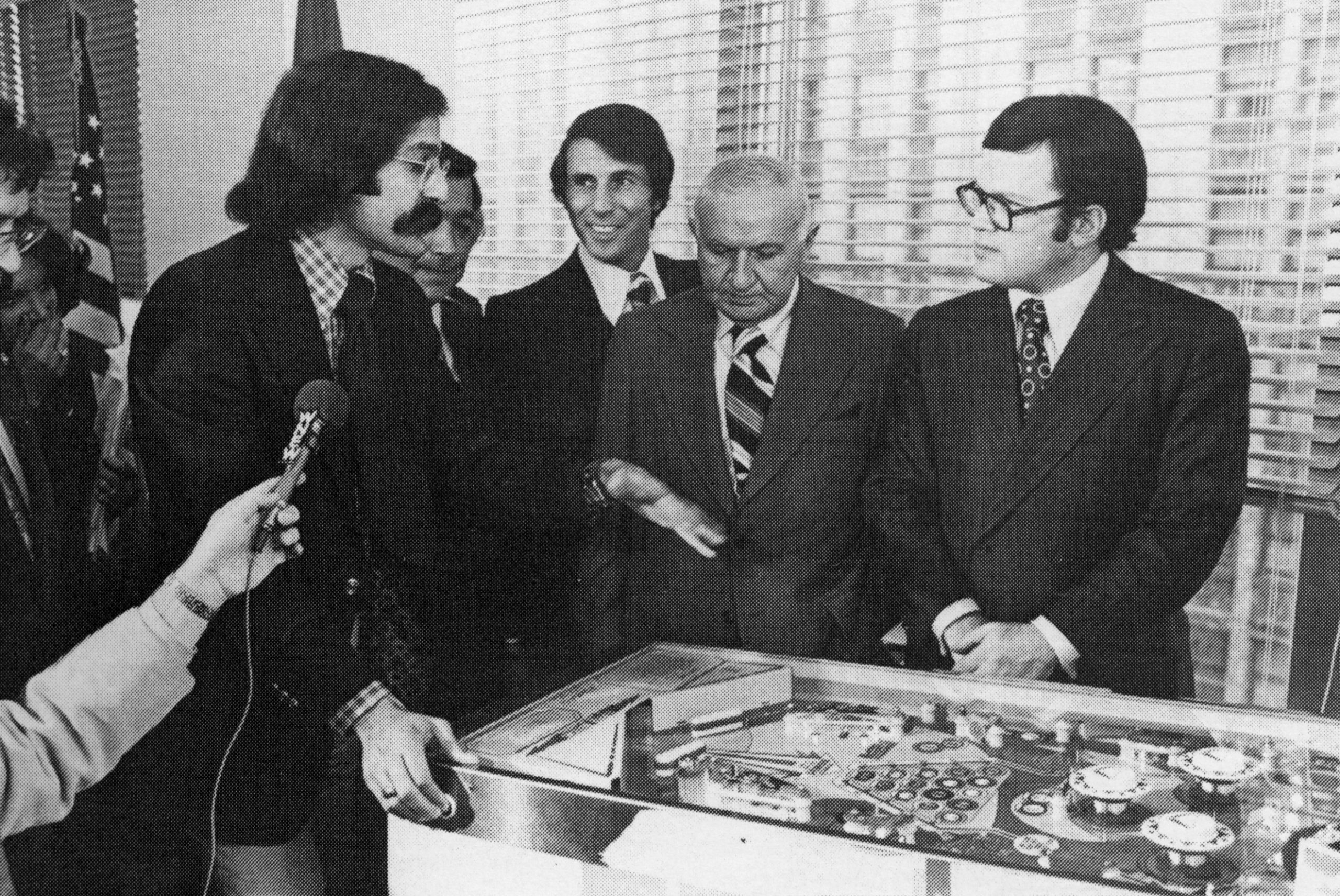
The real Roger Sharpe demonstrates to NYC councilmen that a good player can get a better score, making pinball clearly a game of skill (as printed in RePlay ’s June 1976 issue).
Fast-forward to 1976, when an article by Sharpe was published in the New York Times and got the attention of the MAA (Music & Amusement Assn. of N.Y.) which asked for his help. In April 1976, Sharpe found himself before the city council’s Consumer Affairs Committee demonstrating how a skillful player can be more successful at the game, calling his shots and making them while the lawmakers watched. The resulting vote was 6-0 in the game’s favor. Later, Mayor Abraham Beame gave his okay legalizing pinball in NYC. That decision paved the way for other cities across the country to abandon their pinball bans and restrictions.
While it’s interesting to those of us in the amusement trade, this historical footnote, as Sharpe calls it, found its way into the idea file of two independent filmmakers, brothers Meredith and Austin Bragg. During Covid, they emailed Sharpe, talked on the phone and it was on!
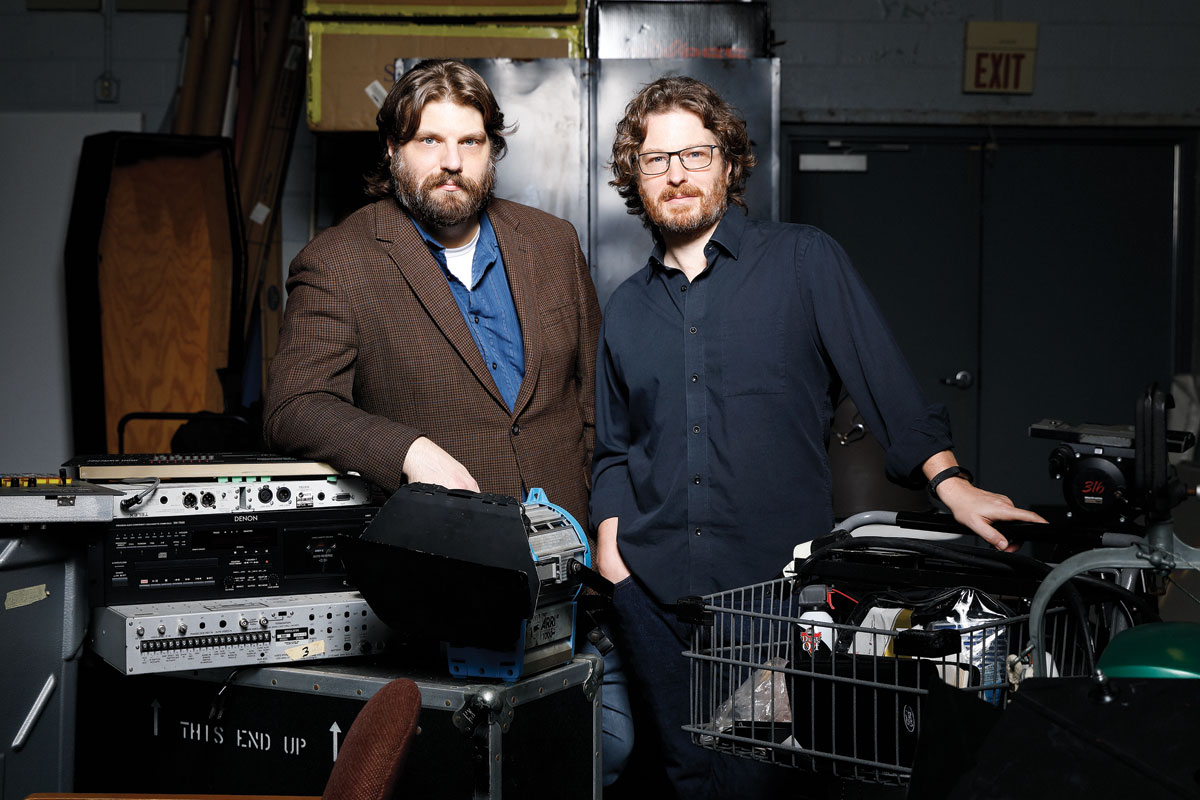
Austin and Meredith Bragg, the film’s writers and directors.
First Contact
Sharpe wasn’t surprised when he received the filmmakers’ email. After all, he’s been asked to speak and participate in interviews and podcasts over the years about the NYC ruling. So, it was not outside the norm for him to say, “Sure, let’s talk.”
“We had a couple more calls and then, I wound up becoming much more involved in the process. By that, I mean we talked a bit more so they could get some background to frame some things. I researched them and found out that these guys were real filmmakers,” he said. Further along, the Braggs created three or four of these ‘look books’ that were more or less templates for the proposed film. “They followed up with MPI and told them what they wanted to do with this next project and the folks there, Lana Link, Rob Pfaltzgraff, Nick Reid and the other executives, bought in.”
What is astounding, he said, is that the year-and-a-half development cycle was accomplished during Covid with a 21-day shoot. “The crew was tireless and committed, putting in endless hours, pulling together toward a common goal and a common good,” he said. “I was there for eight of those days so I saw what was taking place, it was just remarkable. Then, there was all of the post work that took numerous months, the special effects that needed to be incorporated and the other efforts to pull it together.
By the way, Sharpe says that if you don’t blink, you can see his profile in one brief moment and all of the closeup action shots of pinball play have him at the flippers.
“I hadn’t played a Gottlieb Bank Shot in forever and it was funny when we were setting it up for, you know, the shot…I got the center lane, it was like let me just see, and I did it and it went down! And, of course, they ask, ‘Do you think you’ll be able to do it again?’ And I say, “Yeah, come on, start rolling. Let me know when and, lo and behold, I was able to do it a second time!” he said.
“I guess the gods were smiling upon me…again. I’ve talked about how there was some divine intervention the day I played during the hearing. People ask what would have happened if I had missed. And I always respond that I would have gotten close and if it didn’t go straight down, with a little body English, I would have described it as not being as skillful as I should have been. I don’t know if it would have obviously had the same impact as the one pull back of a plunger back then.”
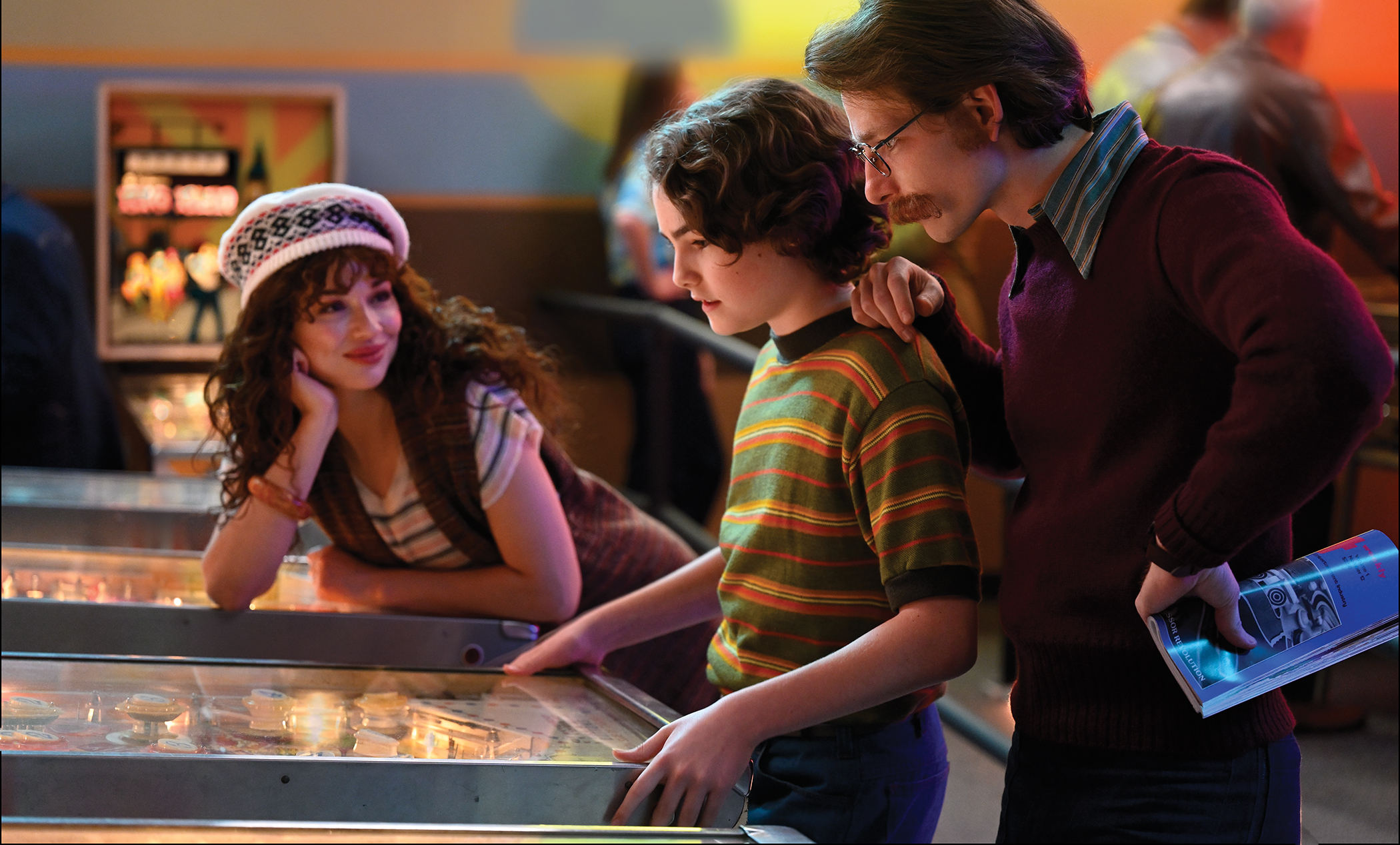
In a still from the film, Roger and Ellen watch as her son Seth plays.
The Festival Circuit
For Sharpe, it’s been an amazing journey. RePlay caught up with him just after he returned from the Raindance Film Festival in London. There, the film was chosen to be the last film of the festival, a placement of honor, he said. “Similarly, the movie was blessed by the Hamptons Film Festival to be the premiere. And, at the Heartland festival, they showed the film on three nights and had a special event afterward at a place called Pins Mechanical that has pinball and bowling,” Sharpe said.
Of special importance to him has been enjoying the audience’s reaction to the movie, as well as comments from the audience during the Q&As afterward. “There was one fellow in particular at the Heartland festival who came up to me with his son, who looked to be in maybe high school or junior high. And he said, with his son standing right there, ‘I have to tell you, I never understood my son but now I get it and I just want to shake your hand and say thank you.’”
He also said people have been shocked and surprised pinball was really ever outlawed, feeling that it had to be some fantasy or trick used to tell this story. “So, I’ve had to say it actually was true. La Guardia did do that.” There are also many touchpoints in the movie that are correct, Sharpe said, from Ellen giving him her business card in the elevator when they first met to his car breaking down in Queens. “A lot of the things that people thought were just kind of cute window dressing to the story were where all the facts were,” he said.
“The movie wouldn’t have happened, truthfully, without the belief of the Moving Picture Institute – MPI Original Films – who bought into Meredith and Austin’s bizarre thought of a film, one that everybody thought might be a short or a documentary, but suddenly turned into a feature. Dennis is just superb, as was the entire cast, and more importantly, kudos to Meredith and Austin, for bringing all this to life,” he said.
And wouldn’t you know, Meredith Bragg said, “None of this would have happened without Roger and not simply because this is based on his life. During production, Roger was able to tap into the pinball community in a way none of us could have. He helped procure the period-era machines we needed, became our on-set pinball consultant, and made sure we were as accurate as possible.
“We really wanted to make a film anyone could embrace, regardless of their knowledge of pinball. But also, a film the pinball community could embrace. We knew we had to get the pinball right. There is no way we would have pulled that off without Roger’s involvement,” he said.
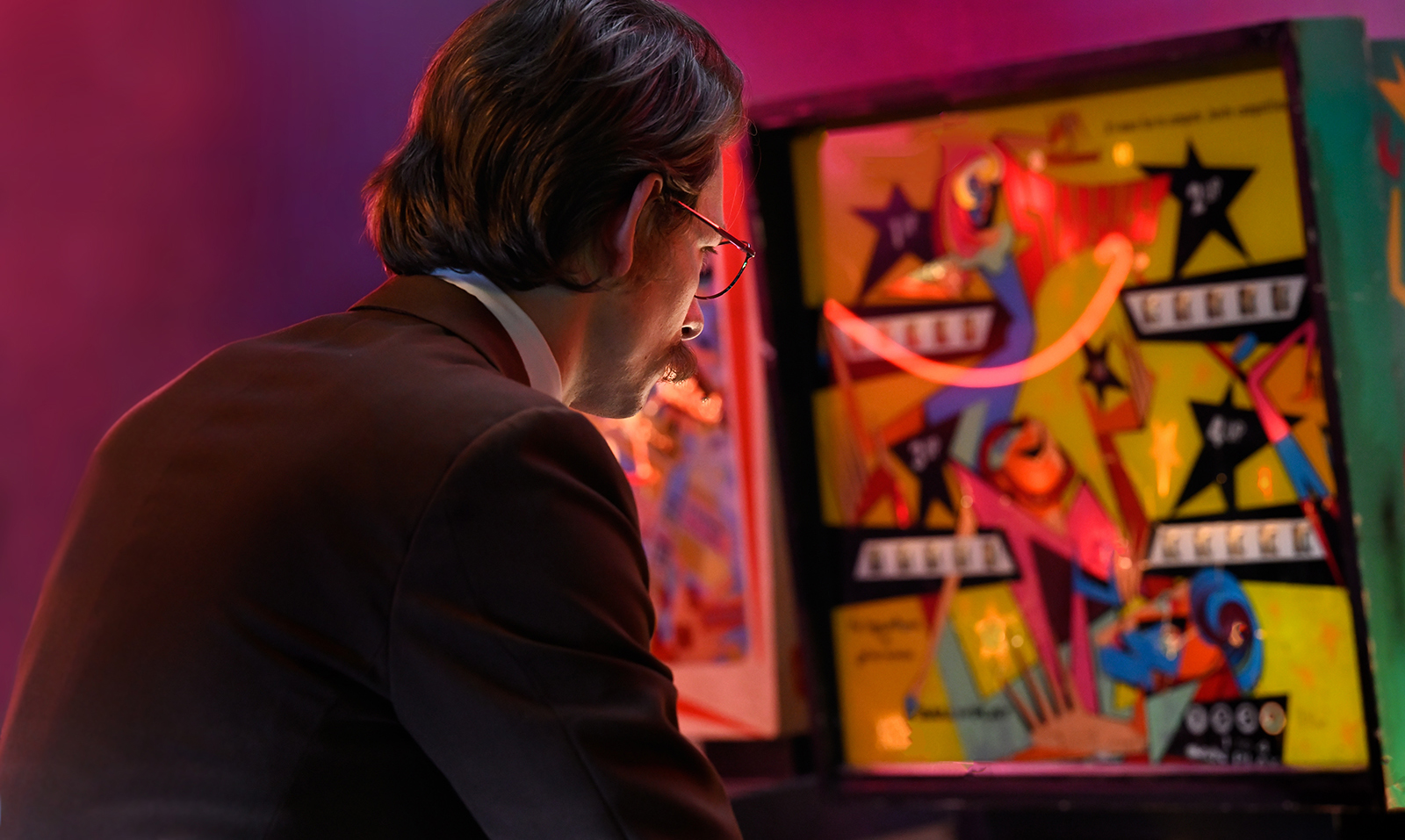
Mike Faist plays Roger Sharpe, the younger version, in Pinball: The Man Who Saved the Game.
Reflecting
“I’m not being overly humble or self-effacing when I say that I am just a historical footnote. It honestly is how I view my entire life. My legacy is the boys, Josh and Zach. I don’t minimize what I’ve done – I do take an incredible amount of pride. But from day one, all I’ve wanted to do is give totally and completely of myself to the cause of making this industry – not just pinball – a much more noble endeavor in how the real world views it. I want to give everyone their fair due for what they’ve done to really bring about paradigm shift in leisure time entertainment.”
“I am hopeful that the response keeps on picking up momentum. We’ve had some wonderful reviews and I’m so proud of what’s taken place,” he said. “My attitude is that I’ve had absolutely nothing to do with this although I was very much involved in every aspect from line editing and story to casting and everything else. But it’s all these other people involved in the project. This is their life. I won’t say my days are behind me at this point, let’s say they’re ‘alongside me.’ So, I’m just amazed and pleased as punch. I hope at the end of the day, it further casts a positive light on the industry and the importance of what we’re involved with.”
As for what’s next for Pinball: The Man Who Saved the Game, Bragg said producers are still fielding offers from distributors. “So, we don’t yet know where it will run, but there is a good chance it will be available for streaming in the spring of next year,” he said. Learn more by visiting www.pinballfilm.com.



